When you're breastfeeding and need to take medicine, the biggest question isn't can you keep nursing-it's whether you should throw out your milk. For years, moms have been told to pump and dump whenever they take a pill. But here's the truth: in nearly every case, you don't need to.
Most Medications Are Safe-Really
The idea that all medications poison breast milk comes from old warnings on drug labels, not science. Pharmaceutical companies often write vague warnings to protect themselves legally, not because the drug is dangerous. The American Academy of Pediatrics says fewer than 2% of medications are truly unsafe during breastfeeding. Most drugs pass into breast milk in tiny, harmless amounts.Take acetaminophen (Tylenol), for example. If you take 650 mg, your baby gets less than 0.1% of your dose through breast milk. Ibuprofen (Advil)? Even less-around 0.01%. These numbers aren't theoretical. They're measured in labs, tracked in real babies, and confirmed by decades of data from LactMed, the National Institutes of Health’s go-to database for breastfeeding and medication safety.
Even antidepressants like sertraline (Zoloft), which many moms fear, show up in breast milk at levels between 0.5% and 2.5% of the mother’s dose. In over 98% of cases, babies show no side effects. Compare that to naproxen (Aleve), which has a longer half-life and has been linked to rare cases of anemia and bleeding in newborns. The difference isn’t just small-it’s life-changing.
Why ‘Pump and Dump’ Hurts More Than It Helps
Throwing out milk doesn’t make your milk safer. It just makes your supply drop.When you skip feedings or pump and dump, your body thinks you don’t need as much milk. Within 24 hours, your supply can fall by 30-50%. A 2022 study in Breastfeeding Medicine found that 78% of mothers who stopped nursing for a day couldn’t fully get their supply back-even after going back to regular pumping and feeding.
And here’s the kicker: 68% of women are told to pump and dump when they don’t need to. A 2021 study in the Journal of Human Lactation found that only 1% of medication cases actually require discarding milk. That means most moms are doing something harmful to their own bodies based on bad advice.
One mom in Chicago pumped and dumped for 72 hours while on a short antibiotic course. Her milk supply dropped 40% permanently. She ended up supplementing with formula-something she never planned to do.
When You Actually Need to Pump and Dump
There are exceptions. But they’re rare.You might need to temporarily stop breastfeeding if you’re taking:
- Radioactive isotopes (used in some imaging tests)
- Chemotherapy drugs
- Ergot alkaloids (like methylergonovine, used for postpartum bleeding)
Even then, it’s usually for a few hours or days-not weeks. For radioactive scans, you’ll get exact timing from your doctor: “Wait 12 hours, then resume.” No guesswork. No dumping unless they tell you to.
For chemotherapy, you’ll work with your oncologist and a lactation consultant to pause and restart safely. But for 99% of other meds-antibiotics, painkillers, allergy pills, blood pressure meds-you keep nursing.
How to Time Your Doses for Maximum Safety
The best way to protect your baby isn’t to throw out milk. It’s to time your doses.Here’s how:
- Single daily dose? Take it right after your baby’s longest sleep stretch-usually after bedtime. By the time they wake up, the drug level in your milk has dropped.
- Multiple doses a day? Nurse right before you take the pill. That way, your baby gets milk with the lowest possible drug concentration.
- Long-acting meds? Avoid naproxen. Choose ibuprofen instead. Avoid long-acting painkillers like codeine or tramadol, which can build up in babies.
Why does timing matter? Because drugs peak in your blood about 1-2 hours after you take them. That’s when they’re most likely to show up in your milk. Waiting 6-8 hours before the next feeding cuts exposure by 80% or more.
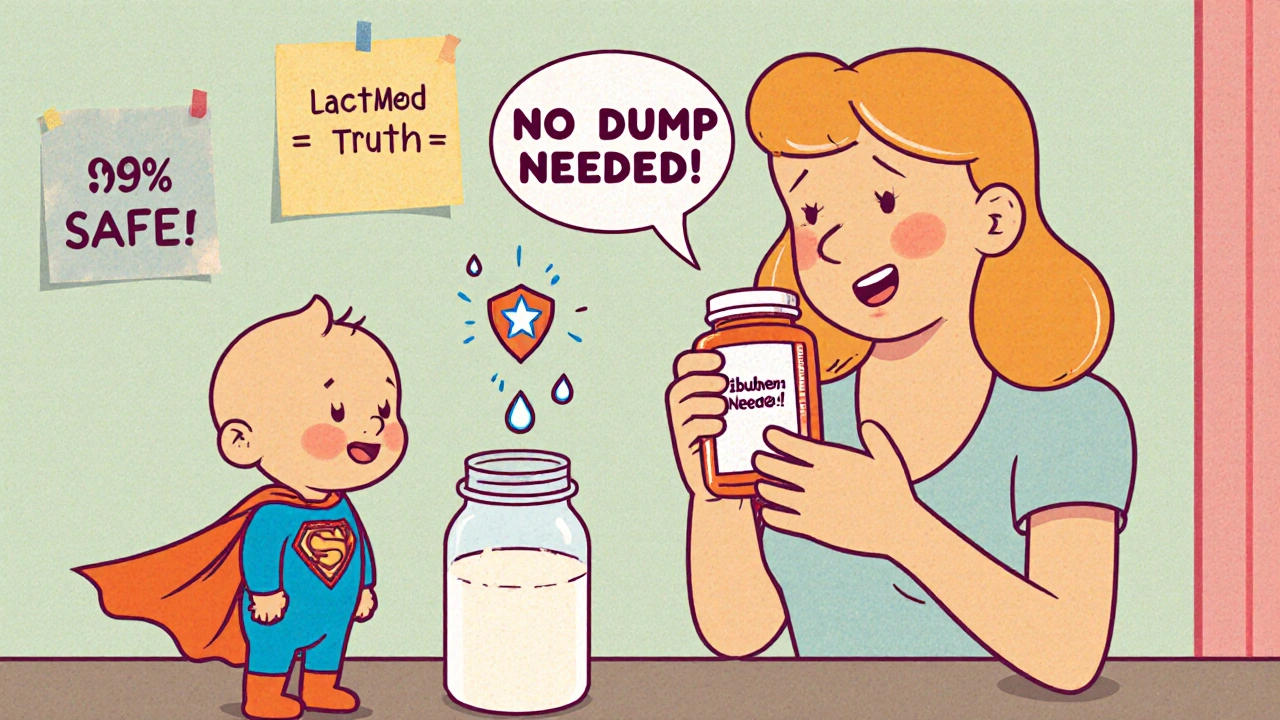
Storage Rules Don’t Change
Taking medicine doesn’t change how long your milk lasts.Follow standard storage guidelines:
- Room temperature (up to 25°C / 77°F): 4 hours
- Refrigerator (4°C / 39°F): 4 days
- Freezer (-18°C / 0°F): 6 months
You can freeze milk you pumped while on medication. The drug doesn’t ruin it. The milk stays safe. Just label it with the date and the name of the medicine, so you remember what you’re feeding.
What Medications Are Safest?
Not all meds are created equal. Here’s what experts recommend:| Medication | Type | Relative Infant Dose | Recommended? |
|---|---|---|---|
| Acetaminophen (Tylenol) | Pain/fever | <0.1% | Yes |
| Ibuprofen (Advil) | Pain/fever | 0.01-0.06% | Yes |
| Sertraline (Zoloft) | Antidepressant | 0.5-2.5% | Yes |
| Cephalexin (Keflex) | Antibiotic | 0.5-1.5% | Yes |
| Naproxen (Aleve) | Pain/fever | High | Use with caution |
| Clindamycin (Cleocin) | Antibiotic | 5-15% | Risk of diarrhea |
For antibiotics, penicillins and cephalosporins are the safest. Avoid clindamycin unless there’s no other option-it’s linked to infant diarrhea in 12% of cases. For pain, skip codeine and tramadol. They can cause dangerous sleepiness in babies. Stick with ibuprofen or acetaminophen.
Where to Get Real Advice (Not Guesswork)
Don’t trust your pharmacist’s general advice. Don’t rely on Google. Don’t follow what your friend did.Use these trusted resources:
- LactMed (from the NIH): Free, updated weekly, lists over 1,300 drugs with detailed pharmacokinetic data. Search by drug name or condition.
- MotherToBaby (866-626-6847): Free, confidential counseling by specialists. They answer questions in 10+ languages.
- InfantRisk Center (866-626-6847): Run by Dr. Thomas Hale’s team. Their app is downloaded over 250,000 times.
- La Leche League Medication Decision Tree: A visual guide to help you walk through your options.
Most hospitals now use LactMed as their standard. If your doctor says “don’t nurse,” ask: “Have you checked LactMed?” If they haven’t, ask them to look it up. You’re not being difficult-you’re being informed.
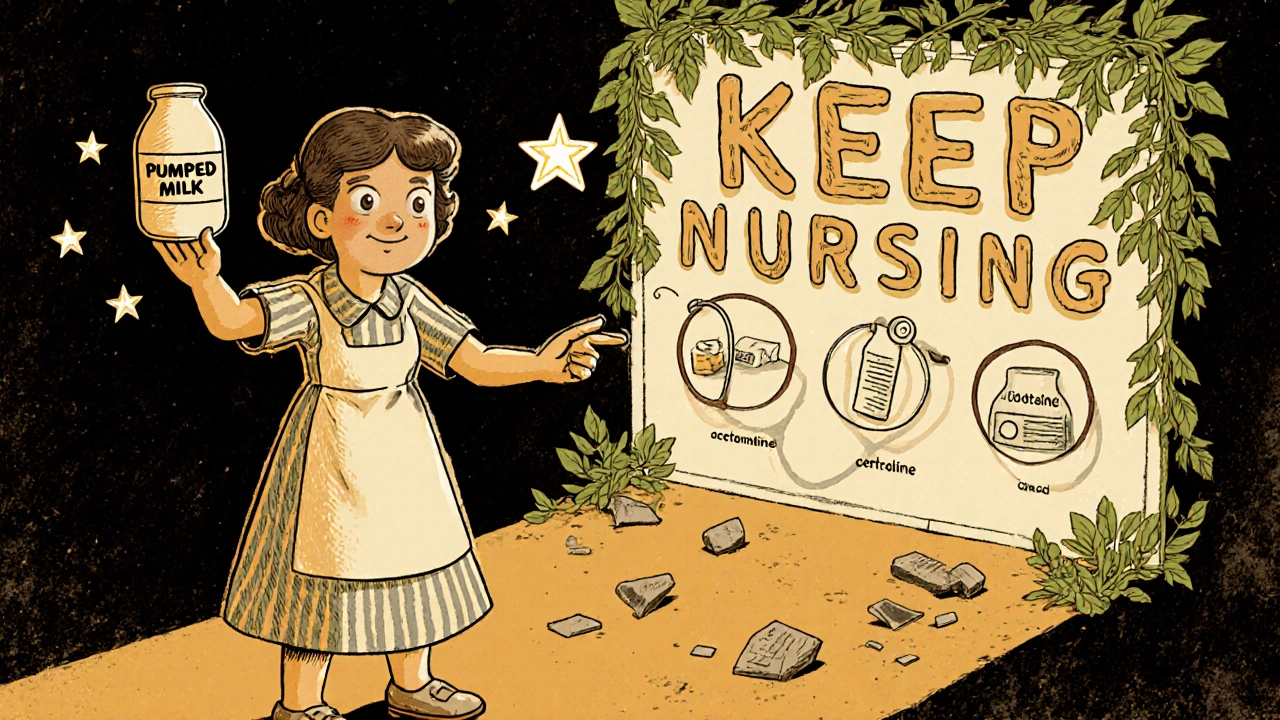
Why So Many Doctors Still Get It Wrong
Here’s the uncomfortable truth: most doctors aren’t trained in breastfeeding pharmacology. A 2021 survey found only 32% of obstetricians and 28% of family doctors could correctly identify safe antidepressants for nursing moms.They’re not lazy. They’re undertrained. Medical schools rarely teach lactation. Drug reps push outdated warnings. Insurance doesn’t pay for lactation consults. So moms get the default answer: “Just pump and dump.”
But things are changing. The CDC’s 2023 Breastfeeding Report Card says 84% of U.S. babies start breastfeeding. That means millions of moms need accurate info. In response, 92% of major hospital systems now use LactMed as their primary reference-up from 67% in 2018.
The FDA is also updating drug labels to include better breastfeeding info. By 2024, you’ll see more precise warnings like “Use with caution” instead of “Not recommended.”
Real Stories, Real Results
One mom in Texas took sertraline for postpartum depression. She was told to stop breastfeeding. She called MotherToBaby. They told her to take it after bedtime and monitor her baby for sleepiness. Her baby slept fine. She kept nursing for 14 months. She says: “I didn’t lose my bond with my baby because of a pill.”Another mom in California was prescribed clindamycin for a tooth infection. She panicked and dumped milk for 3 days. Her supply crashed. She had to buy formula. Later, she learned cephalosporins were safer. She regrets the waste-and the guilt.
These aren’t rare cases. The InfantRisk Center handles 12,000-15,000 calls a year. 78% are about unnecessary pump-and-dump. And in 92% of those cases, they tell moms: “Keep nursing.”
What You Can Do Today
You don’t need to wait for your next doctor’s visit. Start now:- Write down every medication you’re taking-prescription, OTC, supplements.
- Go to LactMed.nih.gov and search each one.
- Call MotherToBaby at 866-626-6847 if you’re unsure.
- Time your doses: nurse right before you take your pill.
- Store milk normally. No need to label it unless you want to track it.
- Share this info with your partner, family, or support group.
Every time you choose to keep nursing instead of dumping, you’re protecting your supply, your confidence, and your baby’s health. You’re not just feeding milk-you’re feeding resilience.
Do I need to pump and dump if I take ibuprofen?
No. Ibuprofen transfers to breast milk in extremely small amounts-less than 0.06 mg per liter. It’s one of the safest pain relievers for nursing moms. You can take it as directed and keep breastfeeding without any risk to your baby.
Can I store breast milk I pumped while on antibiotics?
Yes. Antibiotics like amoxicillin, cephalexin, and penicillin are safe for breastfeeding. The milk you pump while taking them is safe to store and feed later. Only avoid storing milk if you’re on a medication specifically listed as unsafe (like certain chemotherapy drugs), and even then, only during active treatment.
Is it safe to breastfeed while taking antidepressants?
Yes, most are. Sertraline (Zoloft) is the most studied and recommended. It has low transfer into milk and no proven harm to infants. Paroxetine and fluoxetine are also used but require more monitoring. Never stop antidepressants without medical advice-untreated depression poses a greater risk to both you and your baby than the medication.
How long should I wait after taking a pill before breastfeeding?
For most medications, wait 2-4 hours after taking a single dose. But the best strategy is to nurse right before you take the pill. That way, your baby gets milk with the lowest drug concentration. For drugs with long half-lives (like naproxen), avoid them entirely and choose ibuprofen instead.
What if my doctor says to stop breastfeeding?
Ask if they’ve checked LactMed or consulted a lactation specialist. Many doctors rely on outdated package inserts. If they’re unsure, call MotherToBaby (866-626-6847) or the InfantRisk Center. You have the right to evidence-based care. If they still insist on stopping, ask for a referral to a lactation consultant or maternal-fetal medicine specialist.
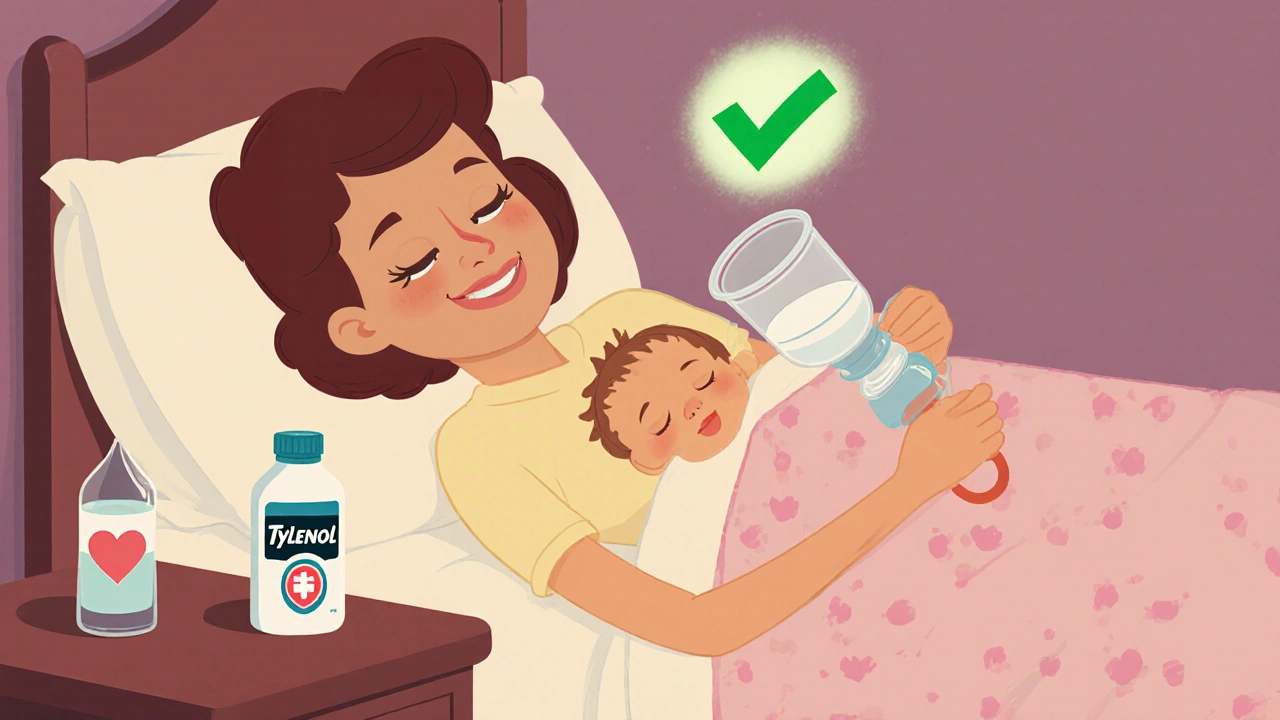
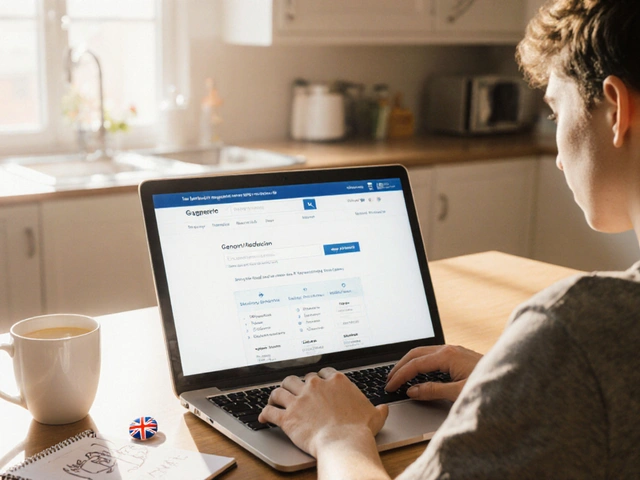
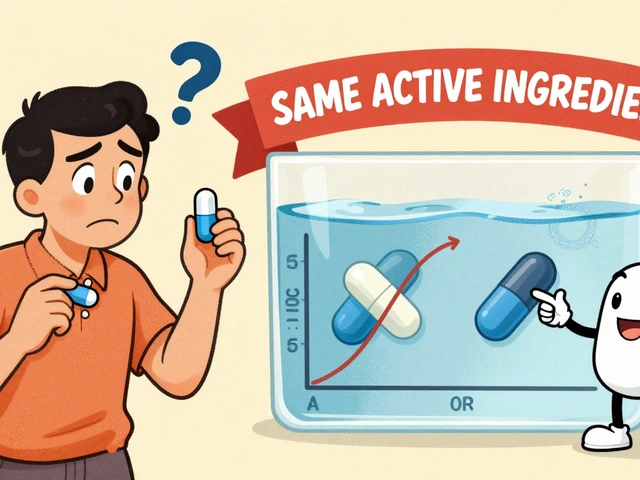
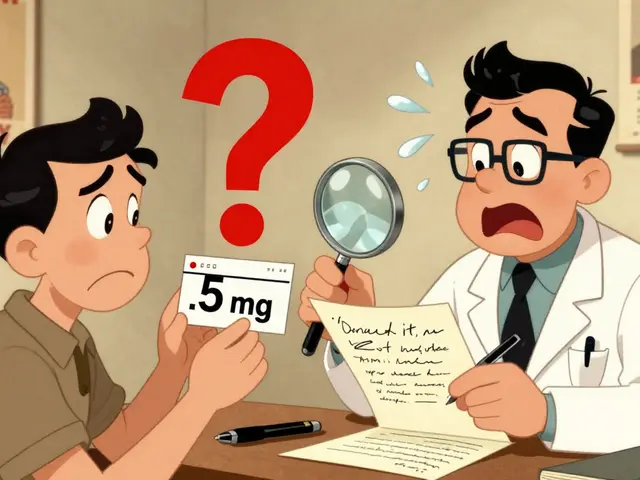
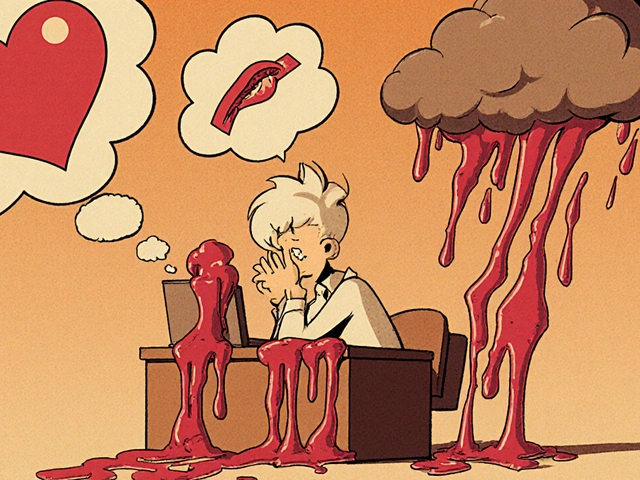
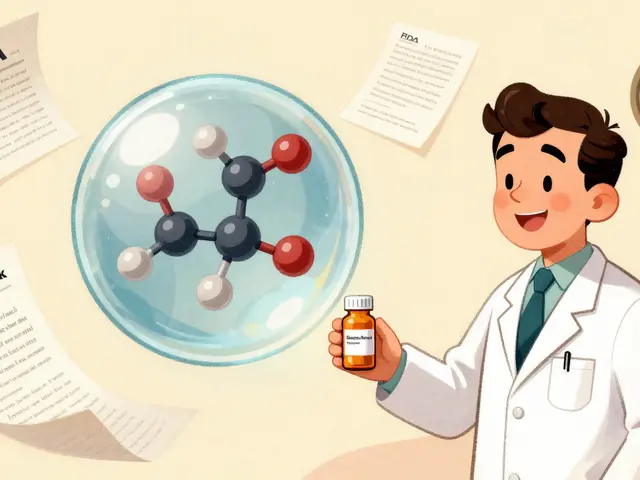
12 Comments
Thank you for this. I wish I’d known this when I was pumping and dumping for no reason.
This is the kind of clear, science-backed information every new parent deserves. So many of us were told to pump and dump out of caution, not because it was necessary. It’s time we update the advice.
Wow, another mom blog telling us what to do. I’m sure the FDA knows better than some random internet post.
Everyone’s so obsessed with breastfeeding like it’s some holy sacrament but let’s be real most of these drugs are still toxic and you’re just gambling with your kid’s brain development. I mean come on
Canada doesn’t have this problem because our doctors actually know what they’re doing. You guys are still stuck in the 90s.
Oh my goodness, this is so beautifully written and so deeply needed-I remember sitting in my kitchen at 3 a.m., crying because I’d just dumped a whole bag of milk after taking a single Tylenol, convinced I was harming my baby, when in reality, I was harming myself-my supply dropped, my confidence shattered, and I felt like a failure… and none of it was necessary. The truth is, we’ve been gaslit by outdated labels and well-meaning but misinformed providers for decades. The science is clear, the data is there, and yet so many of us still live in fear. Thank you for naming the quiet grief of unnecessary pumping and dumping-it’s not just about milk, it’s about trust, autonomy, and reclaiming our bodies from fear-based narratives.
Just use LactMed. Seriously. I’m a nurse and I tell every mom I work with to go there first. It’s free and updated weekly. Don’t trust your pharmacist’s guess.
Timing your doses before feedings is a game-changer. I started doing this with sertraline and my baby slept better than ever. No dumping. No guilt.
Wait so you’re telling me I didn’t have to throw out all that milk after my antibiotics?? I did it for 10 days and my supply is still not back… this is devastating
I’ve been a lactation consultant for 18 years and this is exactly what I tell every mother. The real tragedy isn’t the medication-it’s the misinformation that costs families their breastfeeding journey. Thank you for sharing this.
Let me just say this: I’m a dad, and I used to think breastfeeding was just biology until I saw my wife go through the emotional rollercoaster of being told to pump and dump for a simple headache pill. We didn’t know any better. Then we found LactMed and everything changed. We saved our supply, our peace, and our confidence. If you’re reading this and you’re unsure-don’t guess. Don’t panic. Go to the site. Call MotherToBaby. You’re not alone. And you’re not doing anything wrong by choosing to nurse.
One cannot help but observe that the cultural valorization of breastfeeding, while empirically supported in many contexts, often obscures the epistemological authority of pharmaceutical regulatory frameworks. The dismissal of package inserts as mere legalistic posturing may, in certain cases, represent an overcorrection rooted in ideological affirmation rather than epistemic humility.
Write a comment